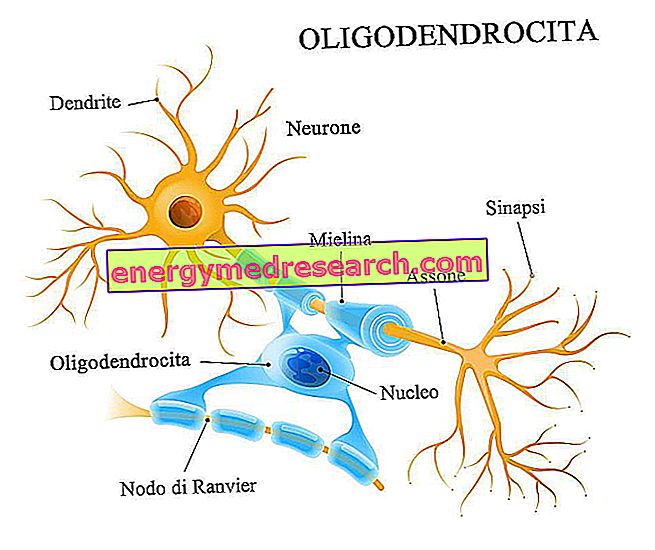Generality
The benefits of smoking cessation are all the positive effects of the cessation of tobacco consumption in the individual smoker.
Quitting smoking is beneficial for the whole body. In fact, the cardiovascular problems, the health of the lungs, the appearance of the skin, teeth and mouth, the vitality of the scalp and the strength of the skeleton improve progressively. Furthermore, the risk of developing numerous chronic neoplasms and lung diseases gradually decreases.
For some improvements, it takes time (even 20 years); for others, a few hours or days are sufficient.

Smoke Damage
The benefits of quitting smoking are all the positive consequences that smoking cessation has on the health of the smoker.
They affect the body as a whole: some organs and tissues show improvement after only a short time (in the order of days or weeks), while others need several months (if not years).
BRIEF SUMMARY OF SMOKING DAMAGES
Before proceeding with the description of the benefits of smoking cessation, it is advisable to review what the damages of smoking are, that is the harmful consequences of the continuous consumption of tobacco on the health of the organism.
Smoking cigarettes, cigars and pipe damage:
- The cardiovascular system . The toxic substances of smoking have various consequences on blood vessels and on the heart: they induce a narrowing of blood vessels (vasoconstriction), an increase in blood pressure (it is the step following vasoconstriction), a marked tendency of the blood to form blood clots (thickening of blood), a persistent increase in the heartbeat, a predisposition to the formation of atheromatous plaques (atherosclerosis), a reduction in the levels of oxygen carried by the blood hemoglobin and, finally, a coronary suffering (that is, of the coronary arteries that "feed" the heart).
Together, all these consequences favor the appearance of stroke and heart attack.
- Lungs and respiratory airways . The respiratory airways of a healthy individual produce mucus and are covered with vibratile eyelashes. Mucus and vibratile eyelashes work together to eliminate debris and dangerous substances, which penetrate the lungs with breathing.
The toxic substances and the carcinogens of smoke progressively destroy the aforementioned eyelashes and this leads to the non-expulsion of the mucus, which in the meantime continues to be loaded with debris and dangerous substances (including the "poisons" of the smoke itself). Debris filled with mucus is harmful to the respiratory airways and lungs. In fact, it is responsible for numerous diseases, some of which are also serious such as pneumonia, pulmonary emphysema, lung cancer and chronic obstructive pulmonary disease.
- The esophagus-stomach digestive tract . Smoking progressively weakens the internal mucosa of the stomach, thus making it more susceptible to acidic substances that normally reside at the gastric level. All this means that the smoker tends to suffer from peptic ulcers and has a marked predisposition to stomach cancer.
At esophageal level, the toxic substances of smoking favor the establishment of a condition known as gastroesophageal reflux disease. Following a deterioration of the cardial sphincter (or lower esophageal sphincter), located between the esophagus and the stomach, gastroesophageal reflux disease consists of the chronic ascent of the acidic contents of the stomach into the esophagus.
In the long run, the continuous rise of acidic substances in the esophagus damages the esophageal wall and induces the development of neoplasms.
- The mouth and the throat (oropharyngeal tract) . At the level of the mouth and throat, smoking is responsible for: bad breath, stained teeth, gingivitis, loss of sense of taste, lip tumors, tongue tumors, laryngeal tumors, vocal cord tumors and throat tumors.
To get an idea of how high the harmful impact of smoke is on the mouth-throat section, the following statistical data is reported: 93% of tumors of the oropharyngeal tract are due to smoking.
- The skin . The "poisons" of smoking reduce the oxygenation of the skin. This has a series of consequences: it accelerates skin aging, dries up and makes the skin yellow, promotes the appearance of wrinkles around the eyes and the mouth.
- The scalp . A smoker's hair tends to be duller and more brittle than a non-smoker's hair. This is caused by the vasoconstrictive effect of smoking, which reduces the oxygenation of the scalp.
- Reproductive system . In humans, smoke toxic substances can impair erectile capacity (causing impotence in severe cases) and sperm production.
In women, they can predispose to: drop in fertility, decrease in the ability to have an orgasm, appearance of cervical cancer, Papilloma virus infections, early menopause and problems in pregnancy (spontaneous abortion, death at birth, death in cradle, premature birth, congenital defects etc.)
- The brain . Smoking increases the risk of suffering from stroke and cerebral aneurysms.
Regarding stroke in particular, keep in mind that smoking increases the probability of suffering a stroke by a good 50% and doubles the risk of death following an episode of it.
- The bones . Several studies have shown that smokers have a greater predisposition to osteoporosis than nonsmokers.
Osteoporosis is a systemic disease of the skeleton, which causes a strong weakening of the bones. The weakening results from the reduction of bone mass, a reduction which, in turn, is a consequence of the deterioration of the microarchitecture of the bone tissue.
- Other organs . Due to smoking, the kidneys, bladder and pancreas may develop.
Benefits of quitting smoking
The benefits of quitting smoking are numerous.
Indeed, ceasing tobacco consumption involves:
- An improvement in respiratory capacity. It is the result of a process of healing of the lung tissue, which begins one month after the last cigarette and can last, in the most serious cases, even 9 months.
During this process, the vibrating eyelash system returns to normal and the cough problem gradually resolves (NB: in smokers, the cough is a physiological response of the body to the inability to expel mucus through the eyelashes, which do not work on duty).
Ex-smokers feel that their lung capacity has improved, when they are exercising: on such occasions, their breathing is much easier than when they smoked.
- An improvement in cardiocirculatory function. Already after 20 minutes from the last cigarette, the vasoconstrictive effect of nicotine is reduced and blood pressure and heart rate begin to take values closer to normal.
After 12 hours, blood oxygen levels are almost equal to those of a person who has never smoked.
So, as the days go by, physical performance improves visibly: walking briskly, running and making other physical efforts is progressively easier.
- A sensitive skin rejuvenation. If it improves blood circulation, it also improves oxygenation of body tissues. The benefit of this is obviously (also) the skin, which rejuvenates, improves in terms of wrinkles and loses that yellowish color typical of smokers.
- An improvement in the appearance of the teeth and the quality of the breath. It takes time for the teeth to return to assume an almost normal complexion; the smell of breath, however, improves in a short time.
- A reduction in the predisposition to malignancies of various kinds, infectious diseases and lung diseases. Scientific studies have shown that after 5-10 years from the last cigarette, ex-smokers are 50% less likely, compared to when they smoked, to develop tumors in the following anatomical sites: mouth, throat, bladder, esophagus and lungs .
As regards infectious diseases, there is a significant reduction in the tendency to contract the bacterium Helicobacter pylori, a pathogen that favors the development of peptic ulcers.
Finally, progressive healing of lung tissue and eyelash reformation reduce the risk of pneumonia, pulmonary emphysema, acute bronchitis, chronic bronchitis (chronic obstructive pulmonary disease) and asthma. Medical investigations have recently shown that, after 20 years, the lungs of an ex-smoker have healed completely and can be considered equal to those of an individual who has never smoked.
- A reduction in the likelihood of suffering from heart attack and / or stroke. Improved blood circulation also means greater blood flow and less tendency to atheromatous plaque formation. All this translates into a lower risk of occlusion of the coronary arteries and arteries that oxygenate the brain.
According to various scientific studies, it takes between 5 and 15 years for the predisposition of a former smoker to suffer from heart disease and stroke to be comparable to that of a person, who has never smoked.
- An increase in fertility. It is a benefit that especially affects women, who are more likely to get pregnant and complete pregnancies successfully.
- An improvement in sexual life. The man improves his erectile capacity, thanks to a more effective blood circulation in the vessels that reach the penis.
The woman recovers her normal ability to reach orgasm during sexual intercourse.
From all this there is an improvement in the life of the couple.
- An improvement in the sense of taste and smell. With the progressive elimination from the body of the "poisons" of smoking, we begin to perceive smells better and to better appreciate foods. This can be a pleasure for life, especially in the case of large smokers, who have a sense of taste that is almost completely dormant.
The recovery of the sense of smell and the recovery of taste are among the earliest appearance benefits: an ex-smoker can feel the improvement already after 48 hours.
- The lack of exposure of friends, family and acquaintances to the so-called passive smoking. For those not yet aware of it, passive smoking has a devastating impact on the health of the body and can be as deadly as active smoking.
For this reason, it is our duty to include it in the benefits of quitting smoking.
What happens to your body when a smoker stops smoking | |
| Time from the last cigarette | Effects |
| 20 minutes | Blood pressure returns to normal levels, as does heart rate. |
| 2 hours | The first signs of nicotine withdrawal begin to appear |
| 12 hours | The level of oxygen in the blood returns to a value very close to normal. Carbon monoxide - a "poison" of smoke that mixes with blood - falls to acceptable levels, as far as the human being's good health is concerned. |
| 48 hours | Smell and taste improve significantly. |
| 72 hours (3 days) | The body has eliminated all the nicotine present in its organs and tissues. It is at this time that the acute phase of nicotine withdrawal begins. The main symptoms of the latter consist of: uncontrollable desire to smoke, irritability, nausea, stomach cramps, anger, anxiety, depression and difficulty concentrating. |
| 5-8 days | The cravings for smoking cravings last more than 3 minutes. |
| 10 days | The cravings for smoking cravings last less than 3 minutes. |
| 2-4 weeks | Nicotine withdrawal symptoms have almost completely disappeared. |
| 2 weeks - 3 months | The risk of heart attack begins to fade. |
| 3 weeks - 3 months | Cardiovascular function shows the first significant signs of improvement. It is easier to walk briskly, run and make efforts. |
| 1 month | The healing process of the lung tissue begins, with the formation of vibrating cilia within the respiratory airways. In severe cases, it takes about 9 months for the lungs to be comparable to those of a person who has never smoked. There is a progressive improvement in the cough, until its complete exhaustion. |
| 12 years | The risk of heart disease and stroke has been reduced by 50%. |
| 5 - 15 years | The risk of stroke is comparable to that of an individual who has never smoked in life. |
| 10 years | The risk of cancer of the throat, mouth, esophagus, bladder, pancreas and lungs has been reduced by 50%. |
| 15 years | The risk of getting pancreatic cancer is comparable to that of a person who has never smoked. |
| 20 years | The risk of developing lung cancer or any other serious lung disease is equal to that of a person who has never smoked. |



